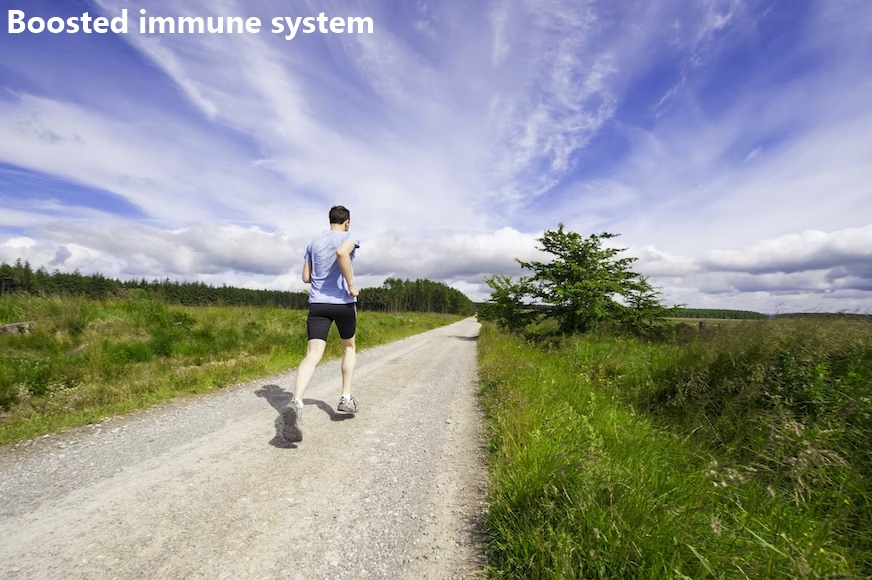Sunlight and Your Health Sunlight plays a crucial role in supporting our overall health and well-being. Apart from providing warmth and light, sunligh
Sunlight and Your Health Sunlight plays a crucial role in supporting our overall health and well-being. Apart from providing warmth and light, sunlight offers various health benefits due to its ability to stimulate the production of essential substances in our bodies. This article will explore the positive effects of sunlight on our health, highlighting the importance of responsible sun exposure and the potential risks associated with excessive sun exposure.
Sunlight and Your Health
Vitamin D synthesis
One of the primary benefits of sunlight is its role in synthesizing vitamin D in our bodies. When our skin is exposed to ultraviolet B (UVB) rays from sunlight, a chemical reaction occurs, converting a precursor molecule in the skin into vitamin D3.
This form of vitamin D is then transported to the liver and kidneys, where it is converted into its active form. Vitamin D is essential for maintaining strong bones, supporting the immune system, and promoting overall health.
Improved mood and mental health
Exposure to sunlight has a positive impact on our mood and mental health. Sunlight triggers the release of serotonin, a neurotransmitter associated with feelings of happiness and well-being. Adequate levels of serotonin are vital for preventing and managing conditions such as depression, seasonal affective disorder (SAD), and anxiety. Spending time outdoors in natural light can improve mood, reduce stress, and enhance cognitive function.
Regulation of circadian rhythm
Sunlight plays a critical role in regulating our internal body clock, also known as the circadian rhythm. The circadian rhythm helps control various physiological processes, including sleep-wake cycles, hormone production, and metabolism.
Exposure to natural sunlight, especially in the morning, helps synchronize the body’s internal clock, promoting better sleep quality, increased alertness during the day, and overall improved well-being.
Boosted immune system
Sunlight exposure has been shown to have positive effects on the immune system. Vitamin D, synthesized through sunlight exposure, plays a crucial role in modulating immune function.

It helps regulate the production and activity of immune cells, reducing the risk of autoimmune diseases, infections, and certain types of cancer. Adequate levels of vitamin D have also been associated with lower rates of respiratory infections.
Skin health
While excessive exposure to sunlight can damage the skin and increase the risk of skin cancer, responsible sun exposure has several benefits for skin health. Sunlight can help treat certain skin conditions such as psoriasis, eczema, and acne.
It promotes the production of vitamin D, which aids in maintaining healthy skin. Additionally, sunlight exposure can improve the appearance of the skin by reducing inflammation, increasing blood flow, and stimulating the production of collagen.
It Isn’t All Negative
Your initial idea could be on the harm the sun can do when you think about it. And consuming too much can result in a number of harmful health problems. However, in moderation and particularly before the sun reaches its peak brightness, it can really be beneficial to your health in several ways.
When Is Enough Enough?
Everyone will have a different response to this. Your skin tone, age, dietary habits, and the environment in which you reside all have a role. In general, scientists believe that 5 to 15 minutes, or up to 30 minutes if you have dark skin, is approximately appropriate to obtain the greatest benefit without endangering your health. If you wear sunscreen, you may spend more time outside and yet receive the same result.
Nutrition D
Your body makes this vitamin with the help of the sun’s UV rays, and it is essential for your bones, blood cells, and immune system. Additionally, it aids in the absorption and utilization of minerals including calcium and phosphorus. Additionally, even though the majority of individuals get enough vitamin D from diet, children who don’t risk developing rickets, which weakens and softens their bones.
Diseases and vitamin D
Spending too much time outside can increase your risk of acquiring skin cancer, but those who reside in northern regions may also have a higher risk of multiple sclerosis and other autoimmune illnesses. Scientists speculate that this may be related to low vitamin D levels.

Enhanced Sleep
To assist your body’s internal clock set, your eyes require light. Sunshine seems to help promote sleep, especially in the morning. As you become older, your eyes may have a harder time absorbing light, and you may find it more difficult to fall asleep.
Loss of weight
Additionally, it seems that morning light aids in weight loss. To make a difference, you need 20 to 30 minutes between 8 a.m. and noon, but the earlier you receive it, the more effectively it seems to work.
The sun’s rays may trigger the fat cells under your skin to constrict, according to experts. With more sunshine, you’re probably also exercising more, which is healthy for you in many ways, including helping you lose weight.
Emotional stability
Serotonin, a hormone that helps keep you calm, happy, and focused, is increased by sunlight and can help you feel more energized. Doctors may use artificial or natural light to treat seasonal affective disorder (SAD) and other forms of depression associated with low serotonin levels.
Eye Care
A lifetime of moderate sun exposure, especially in your adolescence and young adult years, may reduce your risk of developing nearsightedness, the inability to focus on objects that are far away. But exposure to too direct sunlight might damage your eyes. It may cause visual haze and increase your risk of developing cataracts.
Your Body
Melanoma, basal cell carcinoma, and squamous cell carcinoma are the three main kinds of skin cancer, and researchers believe they are all mostly brought on by spending too much time in the sun. Therefore, if you’re going to be outside for more than 15 minutes or so, it’s crucial to wear sunscreen or cover up. However, exposure to low doses of UV light on a daily basis may help reduce the symptoms of several skin disorders, including vitiligo, psoriasis, and eczema.
Sunlight as a Cure
In addition to some skin conditions, jaundice, which mostly affects babies, can also be treated with filtered sunlight. A baby’s skin appears somewhat yellow when there is an excess of the chemical bilirubin in the blood. Bilirubin may be eliminated by placing the infant in sunshine behind a window (to block off dangerous rays). Never leave a newborn outside in the sun.

Avoid getting too much sun
Spending too much time outside without protection increases your risk of developing skin cancer and accelerates the ageing process of your skin, which results in wrinkles, a leathery texture, and dark spots. Additionally, your immune system’s white blood cells help burnt skin repair. That may impair your body’s capacity to fight against pathogens and increase your risk of being ill.
Do: Guard your eyes
When spending time outside, you should always wear wide-brimmed hats and UV-blocking sunglasses. Not just in the summer, the sun may harm your eyes at any time, and its rays can flow straight through clouds. (Remember that children also require this protection.)
Utilize sunscreen
The optimum SPF is 15 or higher. Be on the lookout for “broad exposure,” which blocks more UV rays. Don’t forget to cover your lips, ears, and neck while applying it 30 minutes before going outside. If you exercise or swim, wear more. When the sun’s rays are at their greatest, between 10 a.m. and 4 p.m., try to avoid being in the direct sun and take rests indoors.
Avoid visiting tanning beds
It also increases your risk of developing skin cancer. You have a 60% greater chance of developing melanoma, the most dangerous type, if you start before age 35. Your risk of melanoma increases by 20% after just one session, and it increases by up to 65% for other forms. Tanning lotions might be a good alternative if you want a full body tan. The majority are secure, but frequently lack sunscreen, so don’t forget to wear that as well.
Visit a dermatologist, please
Once a month or so, examine your skin. If you can’t see anything on your body, enlist the aid of a family member if at all feasible. Look over your entire body in front of a full-length mirror, with the assistance of a chair and a hand mirror, for any new growths or alterations in previously visible areas. If you detect anything strange, consult a dermatologist or your physician.
Conclusion
Our health and wellbeing are maintained in large part by sunlight. An appropriate amount of sun exposure aids in the production of vitamin D, enhances mental health, controls circadian rhythm, strengthens the immune system, and improves skin health. To reduce the hazards of excessive sun exposure, it is important to take sun safety precautions, such as using sunscreen, finding shade during the peak UV hours, and wearing protective clothes. We may improve our health and lead happy lives by finding a balance between taking use of the sun’s advantages and shielding ourselves from danger.

COMMENTS